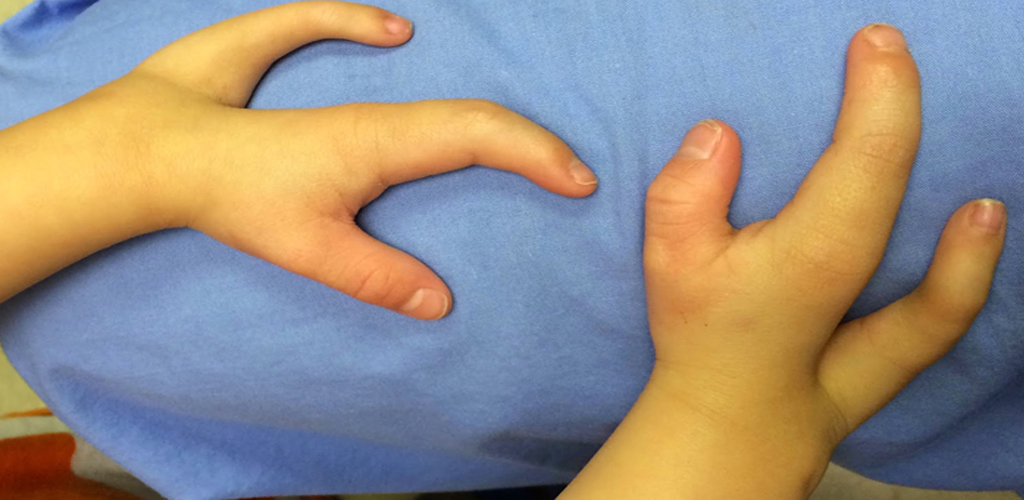A noticeable gap or cleft in the central part of the hand.
.png)

Cleft Hand, also known as a split hand or lobster claw hand, is a congenital condition characterized by a central deficiency in the hand, creating a cleft or gap resembling a lobster claw. This condition can affect the structure and function of the hand, leading to specific challenges that may vary in severity.
Individuals with Cleft Hand may exhibit a range of symptoms, including:
A noticeable gap or cleft in the central part of the hand.
Abnormalities in the fingers on either side of the cleft.
Varied degrees of functional impairment in the affected hand.
Difficulty with fine motor skills and grip.
Cleft Hand is primarily a congenital condition, meaning it is present at birth. While the exact cause is often unknown, it may be associated with disruptions in fetal development during the early stages of pregnancy.
Diagnosing Cleft Hand involves a comprehensive evaluation, including:
A detailed examination of the affected hand to assess the extent of the cleft and associated finger abnormalities.
X-rays or other imaging techniques to visualize the bones and structures in the affected hand.
In some cases, genetic counseling may be recommended to explore potential genetic factors.
The approach to managing Cleft Hand may involve a combination of the following treatment options:
Surgery to repair the cleft, reconstruct affected fingers, and improve overall hand function.
Therapeutic interventions to enhance fine motor skills, grip strength, and functional abilities.
If you or your child is affected by Cleft Hand, our specialized team is ready to provide personalized care. Schedule a consultation to discuss tailored solutions that address the unique needs of Cleft Hand and improve overall hand function.